A historic snowstorm is slamming western New York state Saturday with more than 6 feet of snow in some places, closing roads, triggering driving bans and canceling flights the weekend before the Thanksgiving holiday.
Another round of heavy lake-effect snowfall is expected to return to the Buffalo area Saturday night, according to the National Weather Service. With most of the heavy snow bands falling over Lake Ontario, north of metro Buffalo on Saturday afternoon.
“Even though the band will be moving quickly, it is possible that additional amounts around a half foot or so could occur across the Buffalo metro area,” the National Weather Service said.
On Saturday afternoon, New York Governor Kathy Hochul touted the state’s storm preparedness and said crews have been working tirelessly to manage the situation.
“This is the effort we’ve brought together: bringing resources, people, equipment from all over the state of New York. And because we were so preemptive in this strike, we were able to avert many tragedies,” Hochul said.
She thanked western New Yorkers for shutting down major highways, implementing travel bans and staying home before the snow started to fall which helped prevent accidents, protect human life and ensure roads are safe and clear for emergency services.
Hochul said she is doubling the number of New York National Guard members on the ground in Erie County to check on residents and help with snow removal.
She is also signing a request for federal reimbursement through a Federal Emergency Disaster Declaration.
So far, snowfall totals of more than 6 feet have been recorded in two locations, according to the National Weather Service. Orchard Park, where the NFL’s Buffalo Bills play, has picked up 77.0 inches in the last 48 hours, and Natural Bridge, just east of Watertown, has picked up 72.3 inches; historic numbers for the area.
As the snowfall intensified, two county residents died from cardiac complications related to shoveling and attempting to clear the ground, said Erie County Executive Mark Poloncarz.
“We send our deepest sympathies and remind all that this snow is very heavy and dangerous,” Poloncarz said. “Please continue to avoid shoveling this very heavy, wet snow, and use caution and avoid overexertion if you must shovel today.”
Winter weather alerts are still in effect for over 8 million people across six Great Lakes states Saturday evening: Wisconsin, Michigan, Indiana, Ohio, Pennsylvania, and New York.
Forecasters and officials have been sounding the alarm on the life-threatening nature of this snowstorm, which is historic even for the Buffalo region where heavy snow is the norm during winter months. And the forceful snowfall is expected to continue through the weekend with brief periods of relief.
Areas northeast of Lake Ontario – from central Jefferson County to northern Lewis County – were inundated with heavy snow late Friday, when the snowfall rate was up to 3 inches per hour, according to the weather service in Buffalo. Places between Watertown and Harrisville were also seeing treacherous conditions.
A travel ban is still in place for the entire city of Buffalo based on current and expected weather and road conditions, according to the Erie County website.
Dozens of flights arriving and departing from Buffalo Niagara International Airport were canceled as storm conditions worsened, according to the airport’s website.
This month is already Buffalo’s third-snowiest November at the airport thanks to the storm, according to the local weather service office.
Buffalo Mayor Byron Brown told CNN on Saturday, while his city is used to heavy snow, this is “much more than we usually get.”
He said the city could return to “some sense of normalcy” by Monday or Tuesday, assuming the worst of the storm passes through by Sunday.
“This has been a very unpredictable storm with the snow bands moving, back and forth, north to south,” Brown said. “The snow has come down very fast, very wet, very heavy.”
County official: Do not ignore travel bans
The colossal storm has been pounding the region for days, prompting local and state officials to issue states of emergencies to bolster response. But with a storm of this size, it only takes one or two vehicles to slow down clearing operations, Poloncarz noted.
“A reminder to all employers: if your business is located in a driving ban area or your employees are currently in a driving ban area, it is illegal to make them come into work,” Poloncarz said online.
The snowstorm, which came with a forecast for the Buffalo region not seen in more than 20 years, has been making travel miserable for many drivers, despite authorities’ emphasis on staying off the roads.
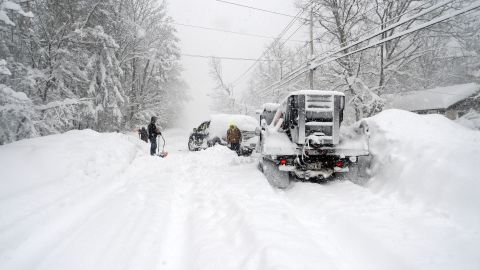
“I can say that our deputies have been just absolutely inundated with calls for service as it pertains to disabled motor vehicles and stranded motorists,” Erie County Undersheriff William J. Cooley said during a news conference Friday night. “We implore the residents to just, please, obey the travel ban, you become part of the problem very quickly when you’re out there on the streets.”
More than 300 citations were issued to drivers who violated the travel ban, Poloncarz said late Friday.
“Please, do not be the reason that an ambulance cannot get to the hospital,” he said. “There are many vehicles that are not only getting stuck but are just being abandoned by the owners.”
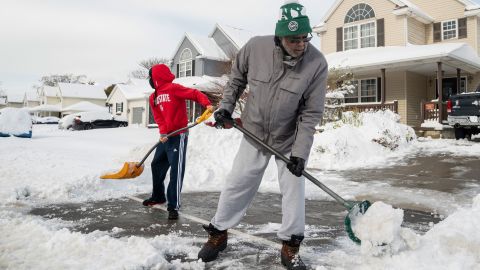
Snow has been falling for an extended period of time at a rapid pace, making it difficult for crews to respond.
“In some cases, we are going to far surpass 5 feet of snow and that’s in a 21-hour period of time,” said Bill Geary, the county’s public works commissioner. “It’s a remarkable amount of time.”
CNN Meteorologists Gene Norman, Taylor Ward and Haley Brink and CNN’s Jay Croft, Hannah Sarisohn, Rob Frehse, Andy Rose, Steve Almasy and Nicole Grether contributed to this report.
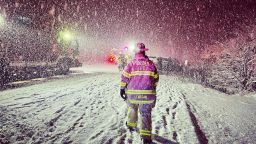

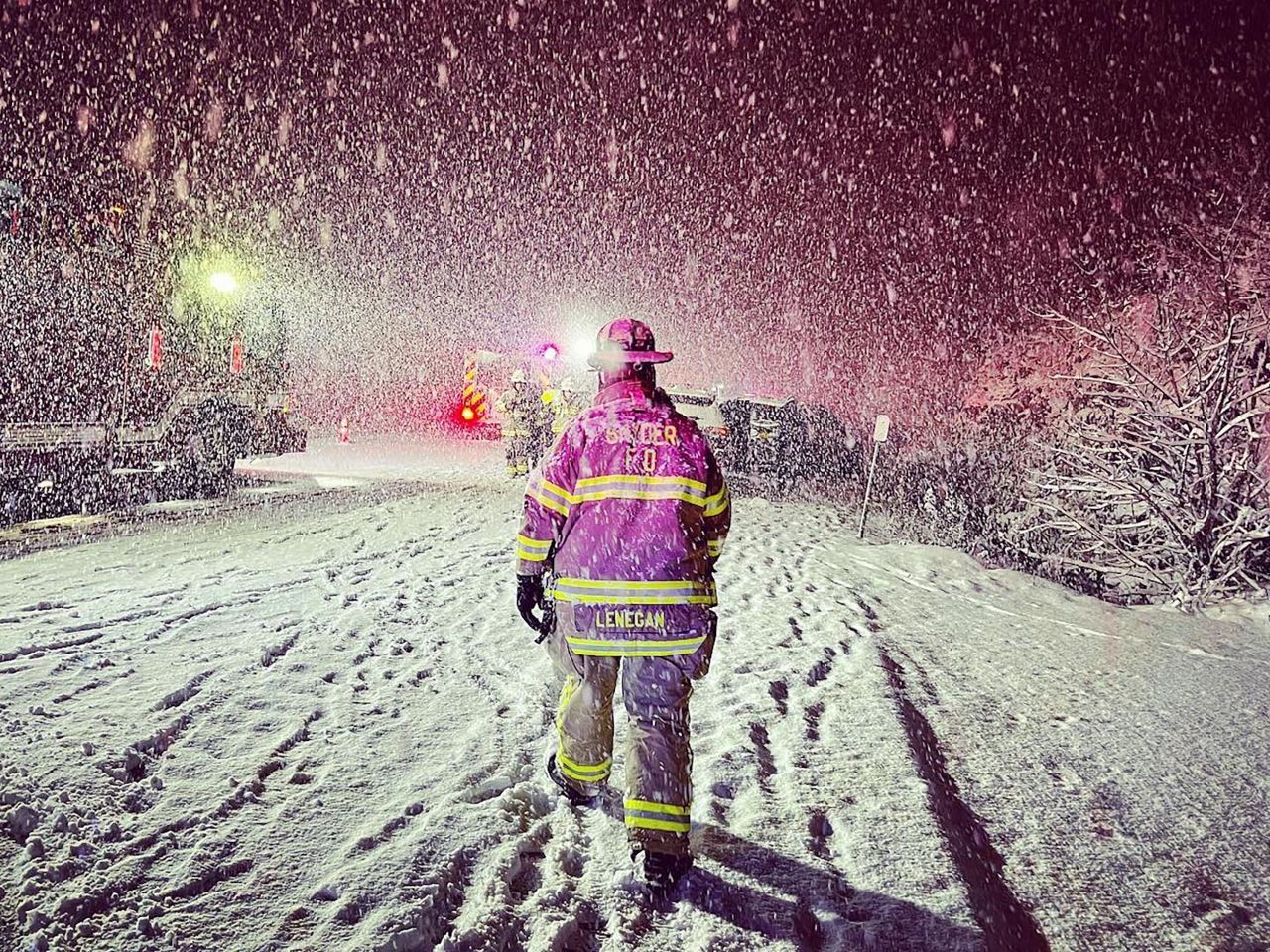
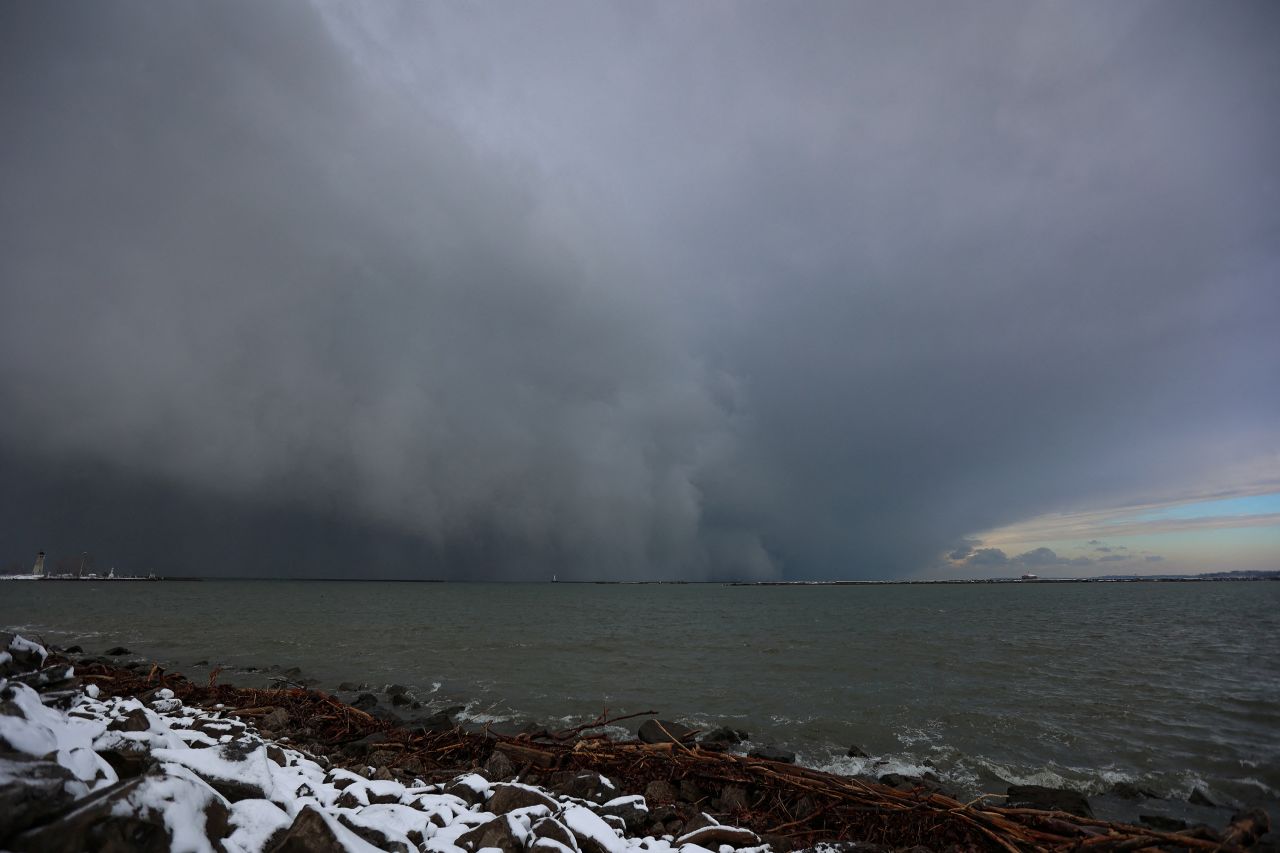
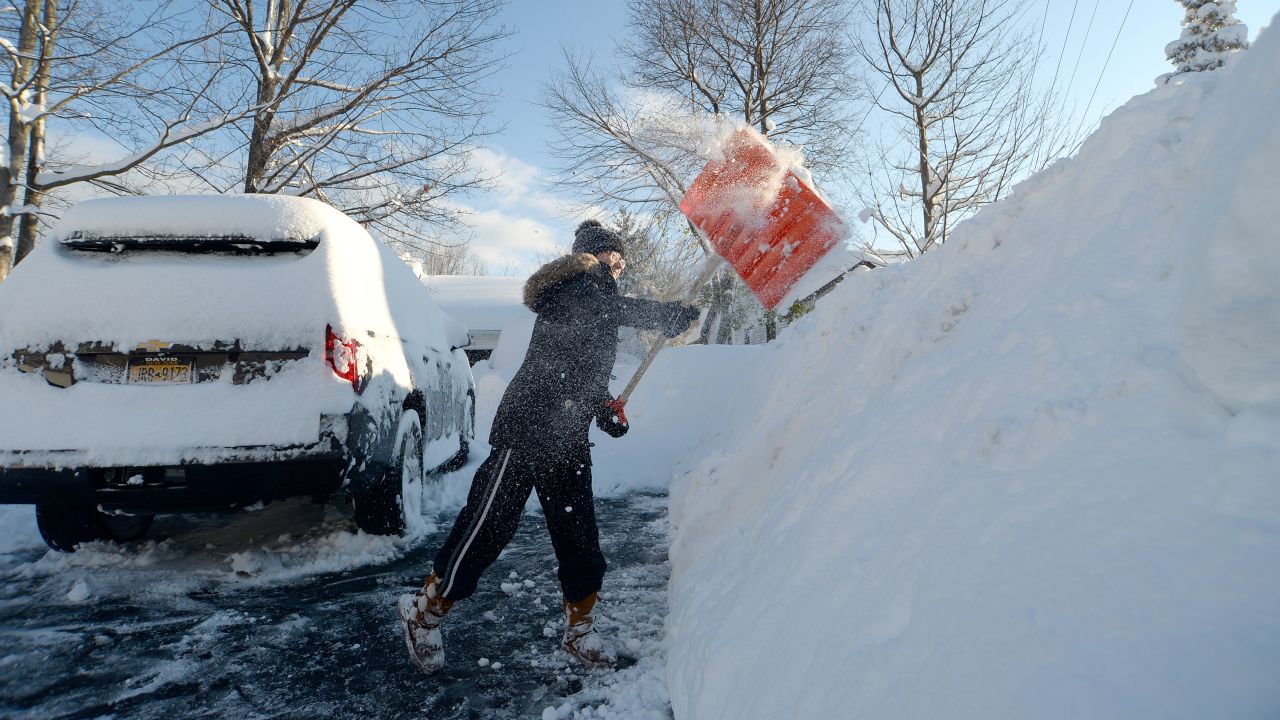
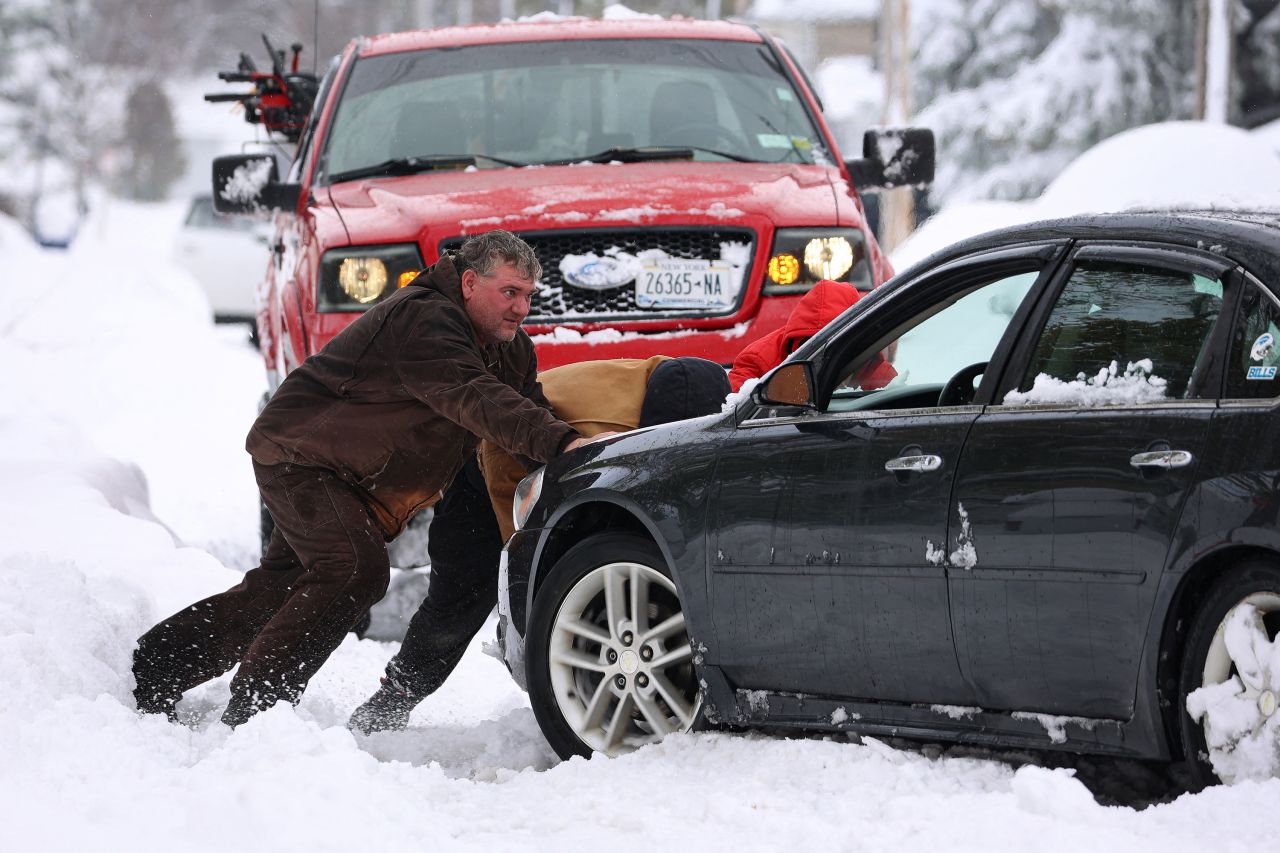
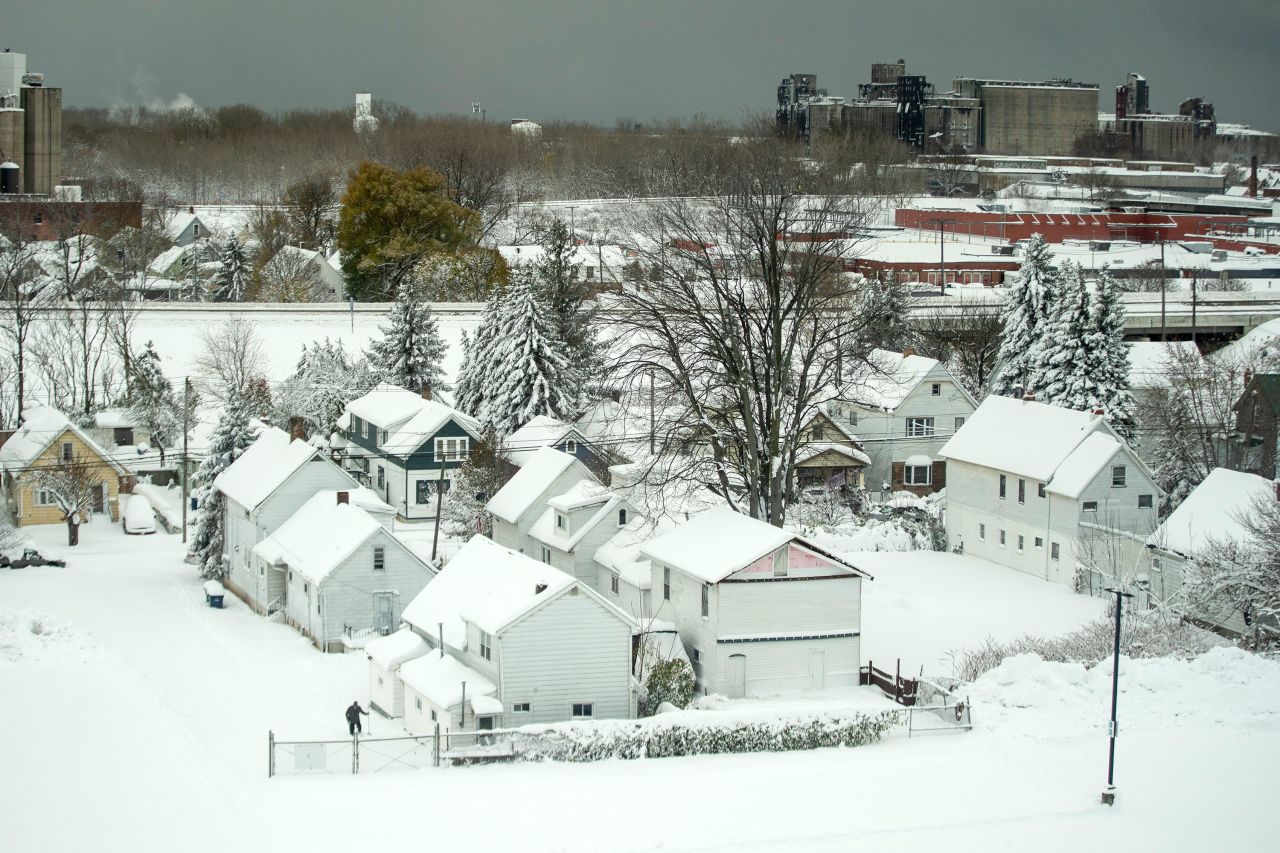
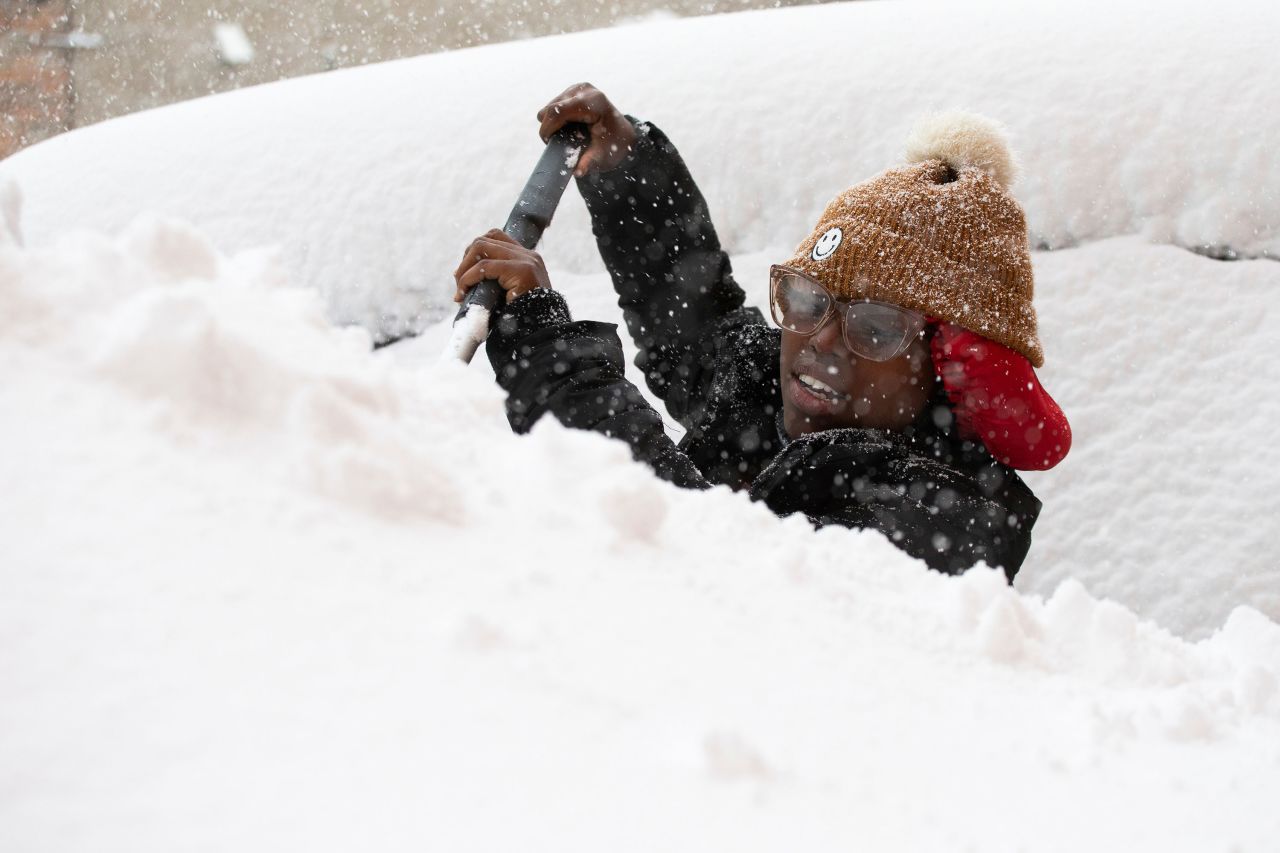
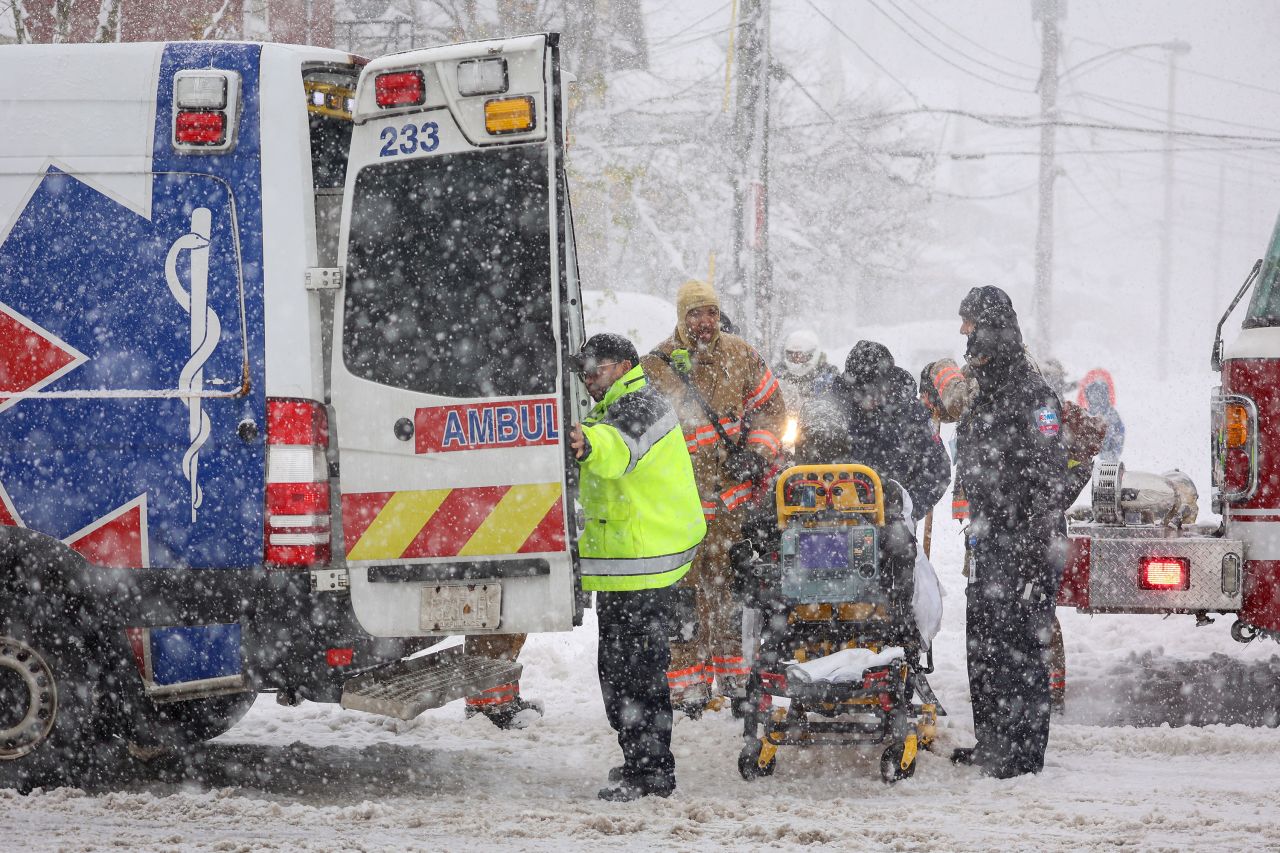
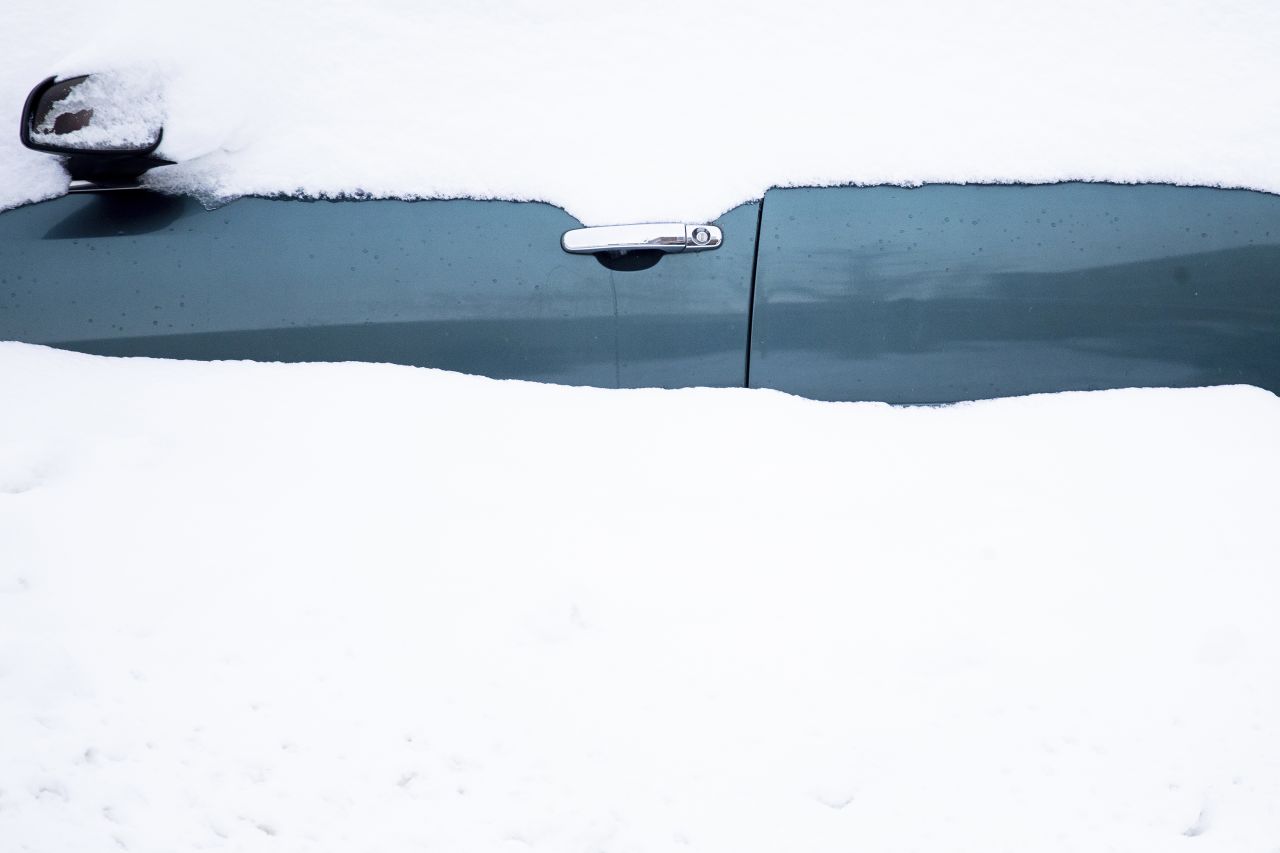
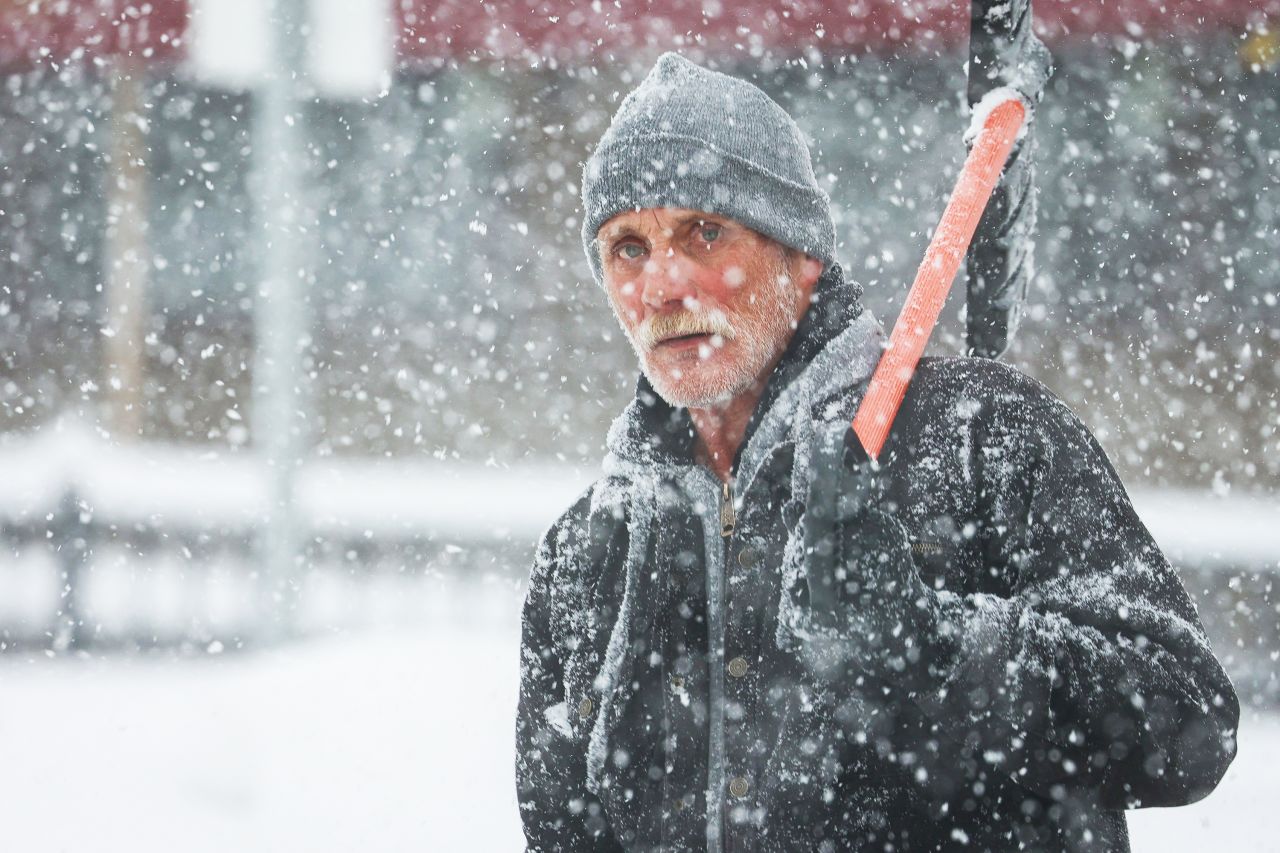
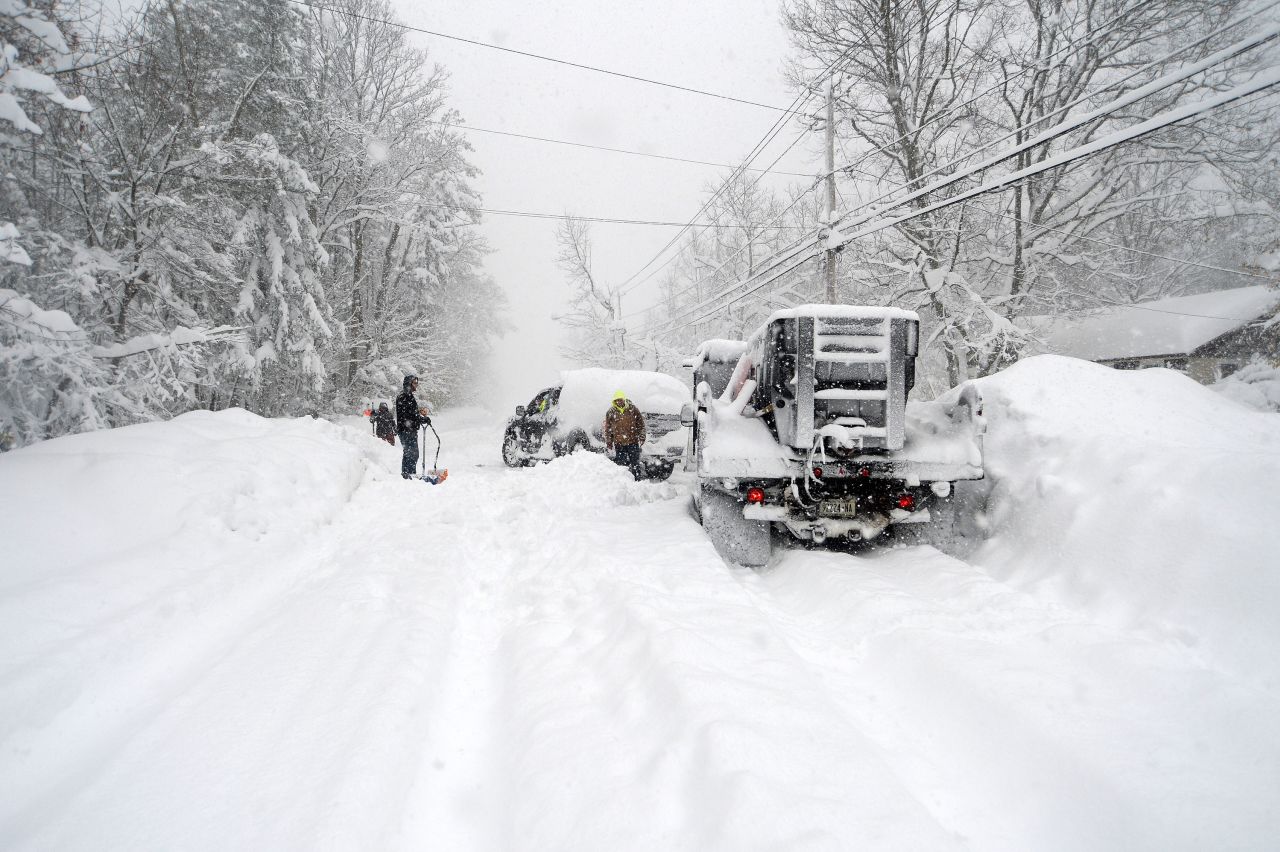
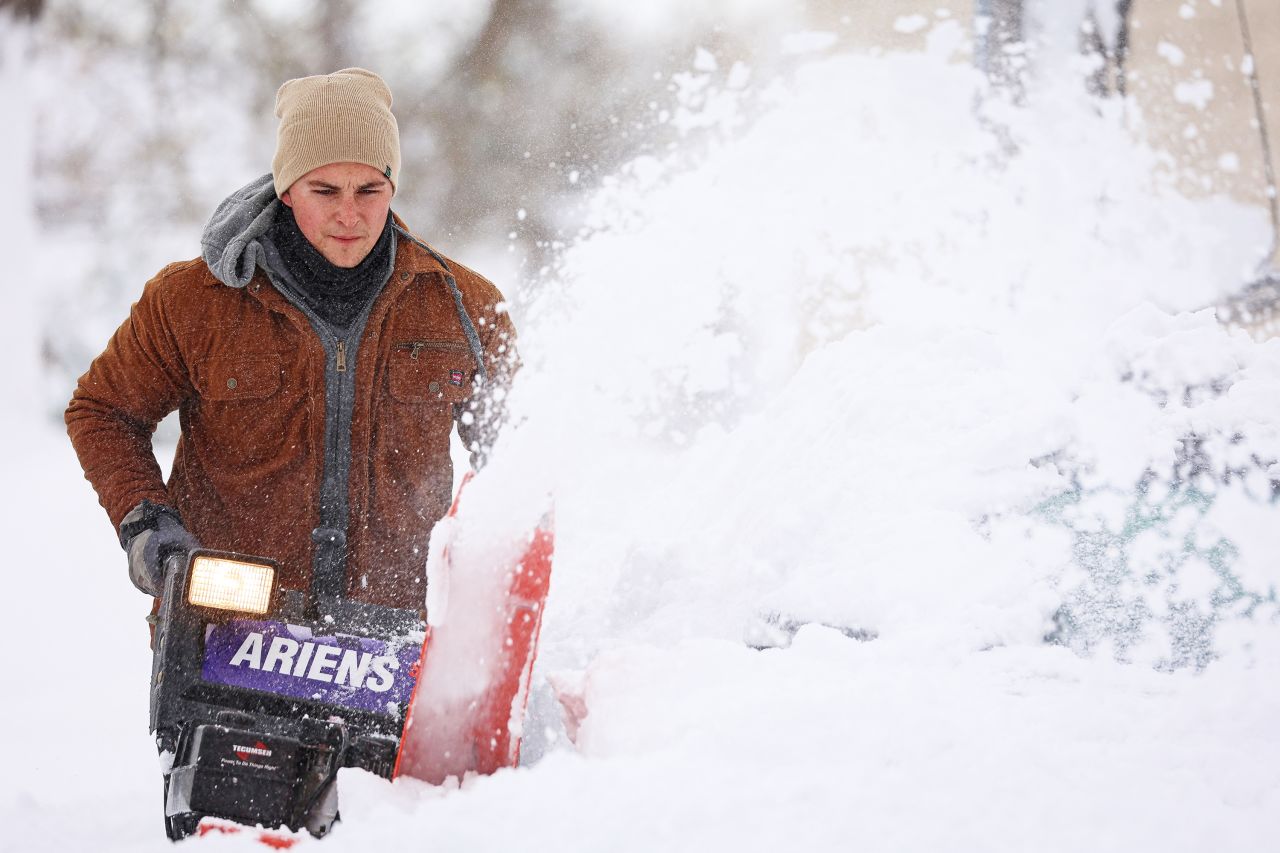
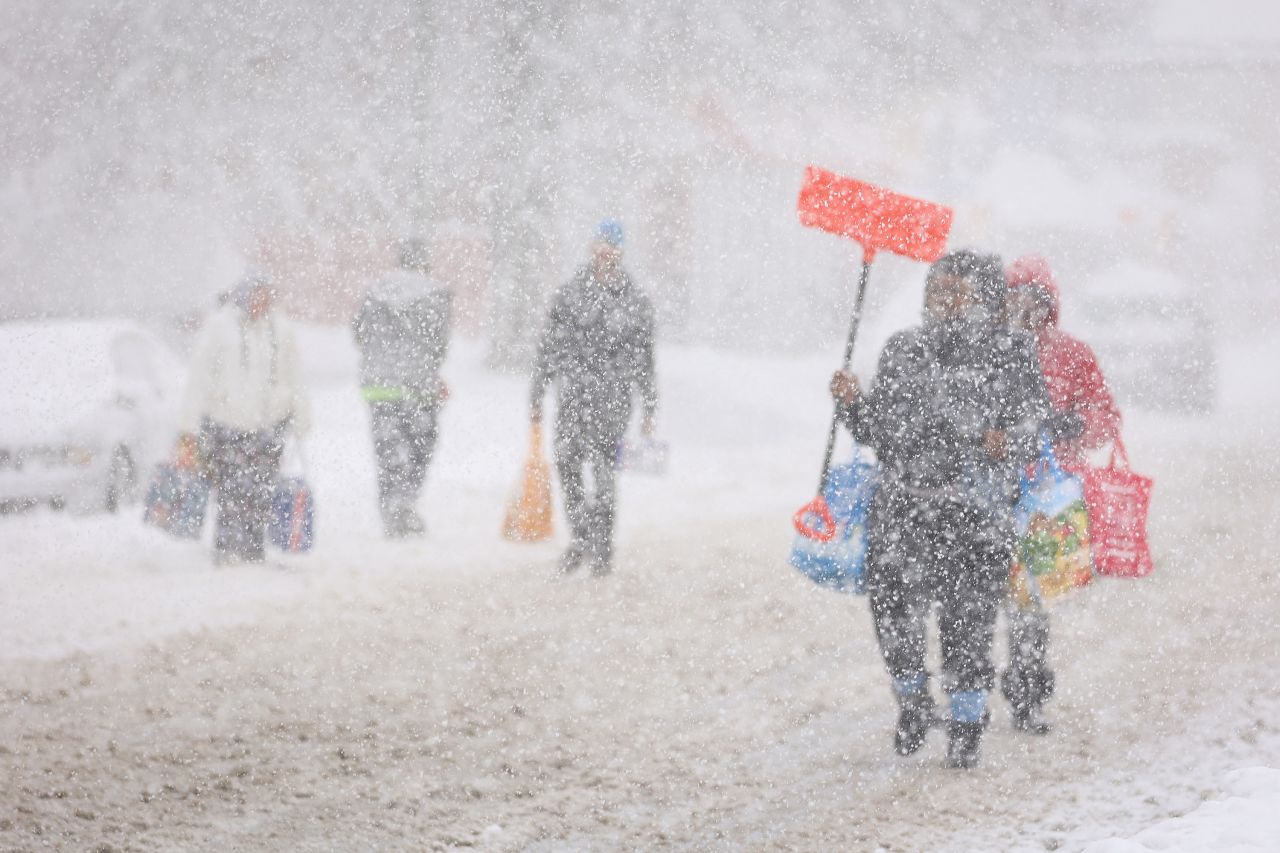
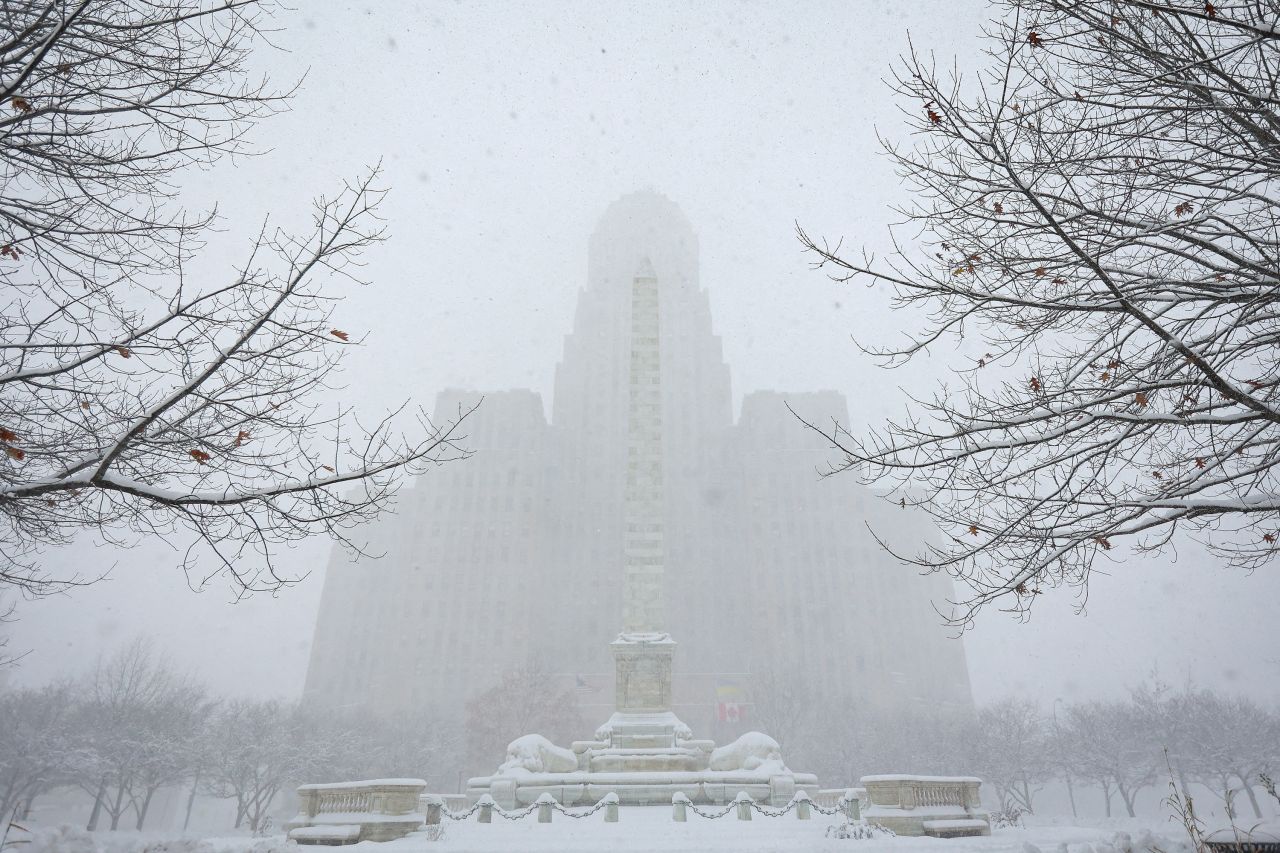
No comments:
Post a Comment